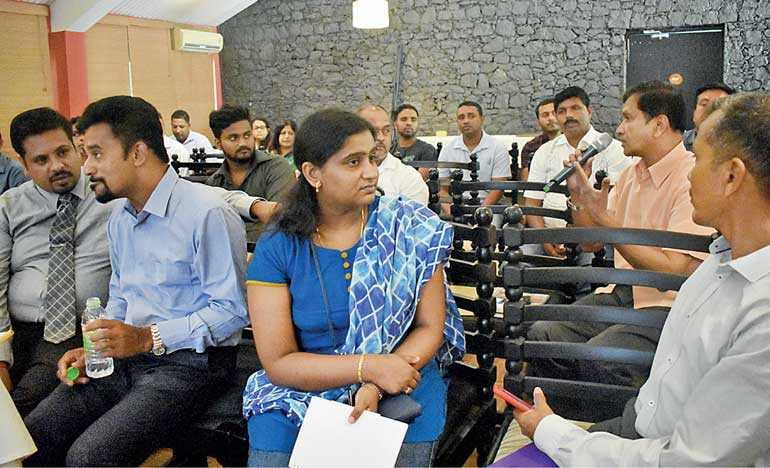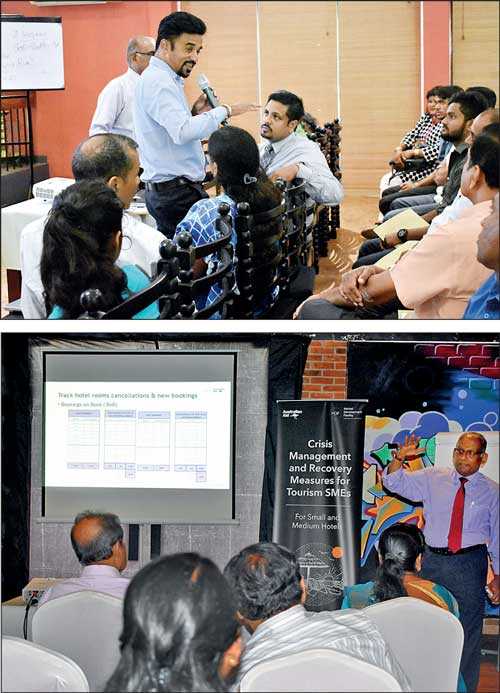Monday Feb 23, 2026
Monday Feb 23, 2026
Thursday, 22 August 2019 00:00 - - {{hitsCtrl.values.hits}}

Crisis management has been the topic of the hour in tourism circles since the Easter Sunday attacks. But much of the conversation has been driven by – and concentrated among – larger industry players and urban centres such as Colombo.
As building tourism resilience is relevant to all segments of the industry, Australia’s Market Development Facility (MDF) held a series of workshops for small and medium players across the country, ending with sessions in Polonnaruwa and Trincomalee. 
The workshops were conducted by tourism veteran Srilal Miththapala, MDF’s Senior Tourism Adviser. The last two workshops in the North Central and Eastern Province, organised jointly with Australian skills program Skills for Inclusive Growth (S4IG), were carried out in Sinhala and Tamil and saw the broad spectrum of tourism represented, with homestay and guesthouse owners, small-scale activity providers, and tour operators joining the SME hoteliers present.
Online booking platform Booking.com were also present to share insight on booking trends, as well as advice on how properties could improve their performance on the platform.
The east has been particularly affected by the attacks. Earmarked by the industry as Sri Lanka’s next emerging tourist hotspot, the former conflict zone was on the cusp of transformation when the attacks hampered all progress. Tourism actors in the region are primarily small and medium-scale, as only a few large hotel chains have a presence in the east; as a result, many small-scale accommodation and activity providers are now struggling. “Smaller businesses are the most affected in the value chain, so any support through training and capacity building is valuable. Programs like this also help boost motivation levels until things begin to pick up again. The most important thing is to help smaller businesses learn how to market their products more effectively,” stated Sri Lanka Institute of Tourism and Hotel Management (SLITHM) Chairman Dilip De Silva in Polonnaruwa.
The workshops cover the basics of general crisis response such as strengthening security, and crisis communications. But they also focus specifically on less-discussed practical issues such as crisis budgeting, cash flow management, debt re-payment strategies and revenue management. There is also a component of finding the opportunities hidden among the challenges of low occupancy – for instance, the time now available to upskill staff.
Polonnaruwa Hotel Owners’ Association Chairperson G.W. Shyamalee Deepthika noted: “Small and medium scale tourism businesses have been badly affected. At such a time we appreciate S4IG and MDF supporting us by organising this useful and informative event.”
Australia’s S4IG program is implemented with the Ministry of Skills Development and Vocational Training. S4IG works with tourism value chains in Trincomalee, Ampara, Batticaloa and Polonnaruwa. Australia’s MDF operates under the Ministry of Tourism Development and Christian Religious Affairs and works primarily in tourism and related sectors across Sri Lanka.